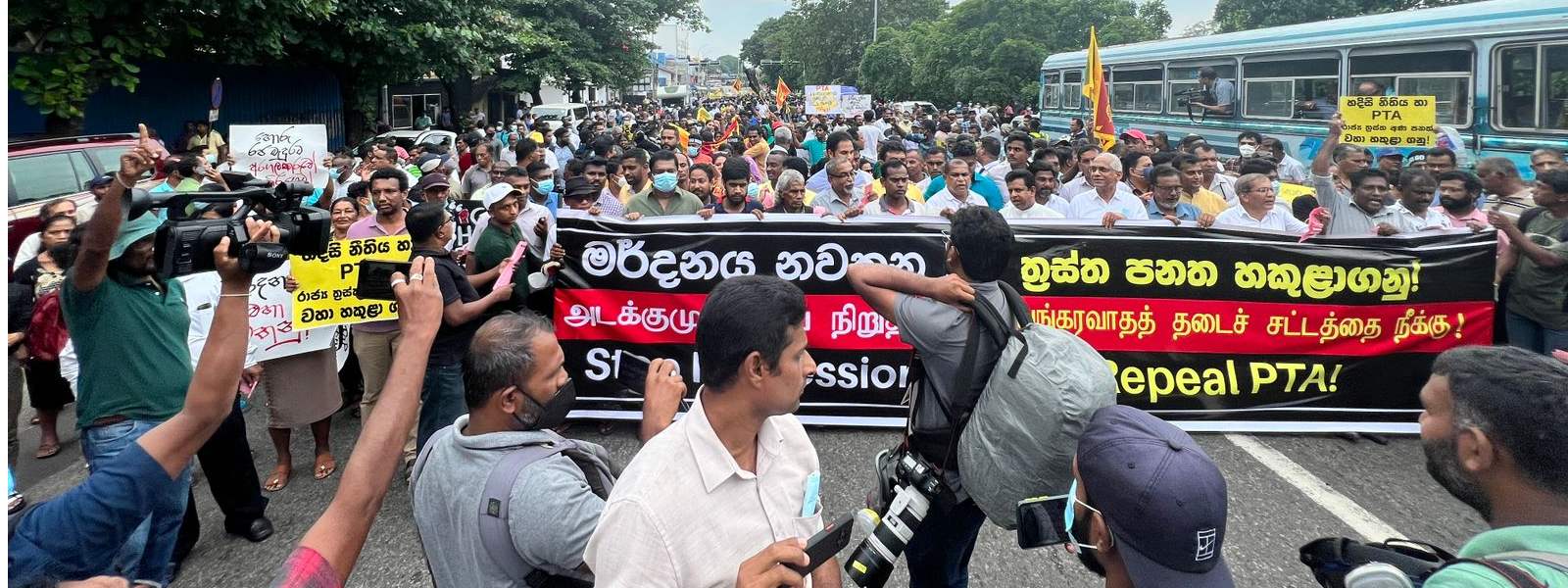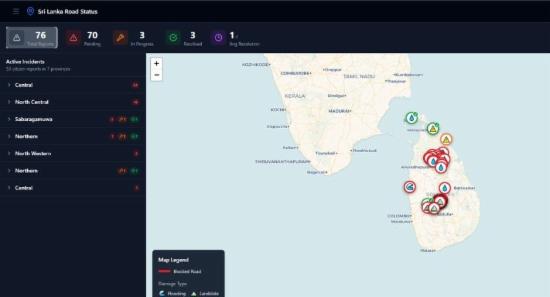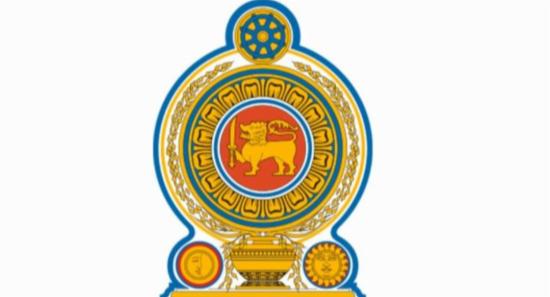.webp)

Colombo mass protest ends at the Police blockade
COLOMBO (News 1st) - Sri Lanka Police on Wednesday (2) evening took measures to prevent a protest march from proceeding to the Fort Railway Station.
The march against state suppression commenced from Maradana and was stopped by police officers close to the Maradana Railway Station.
Sri Lanka Police had informed earlier in the day that as per a letter by the ASP in charge of Colombo Central Area Two permission will not be granted for the protest march, and had called in a large number of its personnel for security in Maradana, and surrounding areas.
Sri Lanka Police took measures to prevent the protestors from marching to Fort, Colombo resulting in heated exchanges.
The protest march by multiple groups including political parties, mass organizations, and trade unions commenced from opposite the Elphinstone Theatre in Maradana at around 3 PM on Wednesday (2).
The Samagi Jana Balavegaya led by the opposition Leader, the Sri Lanka Freedom Party led by its General Secretary Dayasiri Jayasekera, the Frontline Socialists Party, the 43rd Brigade led by Patali Champika Ranawaka, the Freedom People's Congress among 20 political parties, and over 150 trade unions and mass organizations joined the protest.
Police says NO permission:
Sri Lanka Police has issued a letter informing the various protest groups - including students, trade, and political bodies - who planned to protest in Colombo on Wednesday (2), stating that permission will not be granted to protest opposite the Fort Railway Station or in close proximity.
The letter bears the signature of Colombo Central Division 1 Police Superintendent K. A. E. N Dilruk and police officers visited the offices and residences of the protest groups early on Wednesday (2) to hand over the letter.
Sri Lanka Police confirmed that such a letter was dispatched.
The letter goes on to state that during the period of the planned protest roads in Colombo may be blocked, and therefore it may pose obstructions to the public and private office staff who are heading home after work, and the wholesale trading in Fort, and Pettah.
It added that traffic congestion caused by the protest would also delay the shipping of freight containers expected to reach Colombo from the Biyagama, Wathupitiwala, and Kandy Economic Zones and thus impacting the country's economy as well.
The letter from the Police Superintendent also added that the protest would lead to traffic congestion affecting the movement of tourists as well.
It added that in order to use a gramophone, loud-speaker, megaphone, amplifier or any other device to generate sound permission needs to be obtained from a Superintendent of Police under Section 80 of the Police Ordinance, and such permission has not been obtained.
It further notes that if there is any traffic congestion or obstruction, necessary measures will have to be taken as per the Police Ordinance and other laws to remove such inconveniences caused to the public.
Human Rights body to monitor protest:
The Human Rights Commission of Sri Lanka reiterates that the Police must NOT use the provisions of the Police Ordinance to violate the fundemental rights declared and recognized by the Constitution of Sri Lanka.
The HRCSL made this a statement in response to a letter submitted to the Commission by trade unions and mass organizations, informing that the Police had illegally notified them to obtain permisison for the peaceful protest set to be held on Wednesday (2).
The HRCSL highlights that peaceful protests arr permitted according to Section 77 of the Police Ordinance.
It warned the Police that the Constitution of Sri Lanka is infact the supreme law of the country, adding that violating fundamental rights would result in serious consequences.
The HRCSL also reminds the Police to pay attention to the recommendations made by the Commission to the Public Security Minister on the 28th of September.
According to the statement, a team attached to the Human Rights Commission will also be deployed to monitor the peaceful protest march.
Chambers want protest called off:
Six major business chambers in Sri Lanka have called for the halting of anti-government protests that they say could undermine efforts taken to stabilize the economy.
In a joint statement, the chambers added that negative publicity could seriously derail action that are being taken to revive the economy, particularly the efforts taken to revive tourism.
'Any act of destabilization taking place at this time and any negative publicity arising from it would seriously derail actions that are being taken to revive the economy including the efforts being taken to promote tourism' the statement read.
Pointing out that a few airlines have agreed to commence flights to Sri Lanka and given the high cost of energy in Europe during the winter, Sri Lanka will have an ideal opportunity to attract tourists which will support the Hospitality industry, the Chambers say that any instability can affect the recovery process for exports and foreign investment too.
'We appeal to all parties to divert their energies and resources towards encouraging positive reforms and focus on how we recover as a nation instead of engaging in acts that can further damage the economy and place more burdens on the people of this country' the statement mentioned.
This statement has been issued by the following Chambers:
Ceylon Chamber of Commerce (CCC)
Chamber of Young Lanka Entrepreneurs (COYLE)
Federation of Chambers of Commerce and Industry of Sri Lanka (FCCISL)
International Chamber of Commerce Sri Lanka (ICCSL)
National Chamber of Exporters of Sri Lanka (NCE)
Women's Chamber of Industry and Commerce (WCIC)
Amnesty says NO need permission to Protest:
Amnesty International noted that it is concerned over Sri Lanka Police denying permission for the protest by trade unions, students and political parties.
Protestors must not be required to obtain permission from authorities, to exercise basic human rights such as the right to peaceful assembly.
The reasons for denying permission for the protest quoted by the Police do not amount to legitimate restrictions against peaceful assembly as provided by international law, said Amnesty International.
It added that the UN Special Rapporteur on Freedom of Peaceful Assembly and Association has stipulated that "the free flow of traffic should not automatically take precedence over freedom of peaceful assembly."
Amnesty International South Asia said that urban spaces are not only an area for circulation but also spaces for participation. Many assemblies, by nature, involve a certain level of disruption to ordinary life or the rights of others.
It added that nevertheless, disproportionate restrictions to protest, jeopardise the right to freedom of expression.
Freedom of peaceful assembly is a right, not a privilege. Authorities are under an obligation to facilitate this right, it added.
Other Articles
Featured News





.png )


-819606_550x300.jpg)








-819380_550x300.jpg)


-812087_550x300.jpg)
-810262_550x300.jpg)








.webp)






